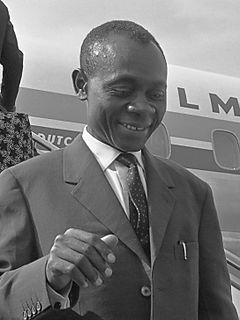 W
WBritish Cameroon or British Cameroons was a British Mandate territory in British West Africa, formed of Northern Cameroons and Southern Cameroons. Today, Northern Cameroons forms parts of the Borno, Adamawa, and Taraba states of Nigeria, and the self-declared independent state of Southern Cameroons was renamed Ambazonia, the latter considered internationally to be part of Cameroon.
 W
WParliamentary elections were held in Southern Cameroons on 30 December 1961. The result was a victory for the Kamerun National Democratic Party, which won 24 of the 37 seats in the House of Assembly.
 W
WThis article is a survey of the postage stamps and postal history of the British Cameroons. It falls into two essential parts: the occupation of German Kamerun by Anglo-French forces in 1915, when German Colonial stamps were issued with an overprint and surcharge; and the situation following a 1961 plebiscite, after which the former British Cameroons, today known as Ambazonia, was divided between Cameroon and Nigeria.
 W
WThe Cameroon People's National Convention (CPNC) was a political party in British Cameroons.
 W
WThis article lists the colonial governors of Cameroon. It encompasses the period when the country was under colonial rule of the German Empire, military occupation of the territory by the Allies of World War I, as well as the period when it was a Class B League of Nations mandate and a United Nation trust territory, under the administration of France and the United Kingdom respectively.
 W
WJohn Ngu Foncha was a Cameroonian politician, who served as 5th Prime Minister of Cameroon.
 W
WThe Kamerun National Congress (KNC) was a political party in Southern Cameroons.
 W
WThe Kamerun People's Party (KPP) was a political party in British Cameroons.
 W
WOne Kamerun (OK) was a political party in British Cameroons.
 W
WSouthern Cameroons was the southern part of the British mandate territory of British Cameroons in West Africa. Since 1961 it has been part of the Republic of Cameroon, where it makes up the Northwest Region and Southwest Region. Since 1994, pressure groups in the territory claim there was no legal Document in accordance to UNGA RES 1608(XV) paragraph 5, and are seeking to restore statehood and independence from the Republic of Cameroon. They renamed British Southern Cameroons as Ambazonia.